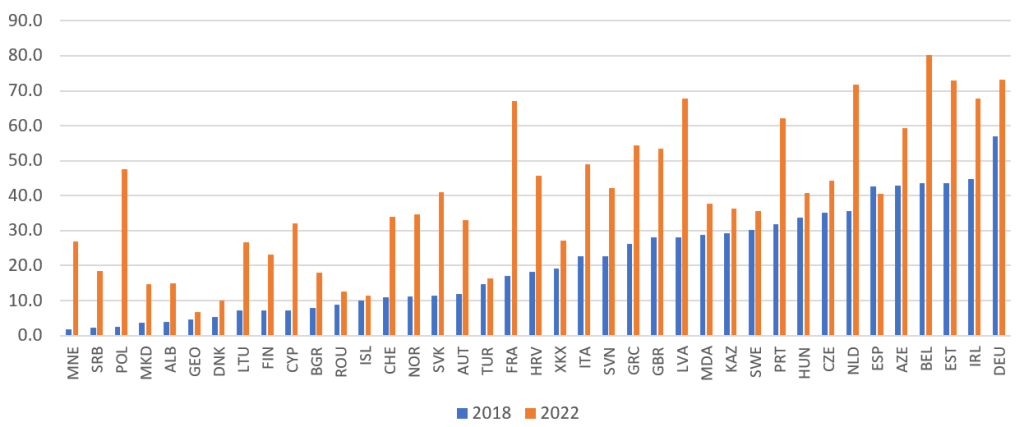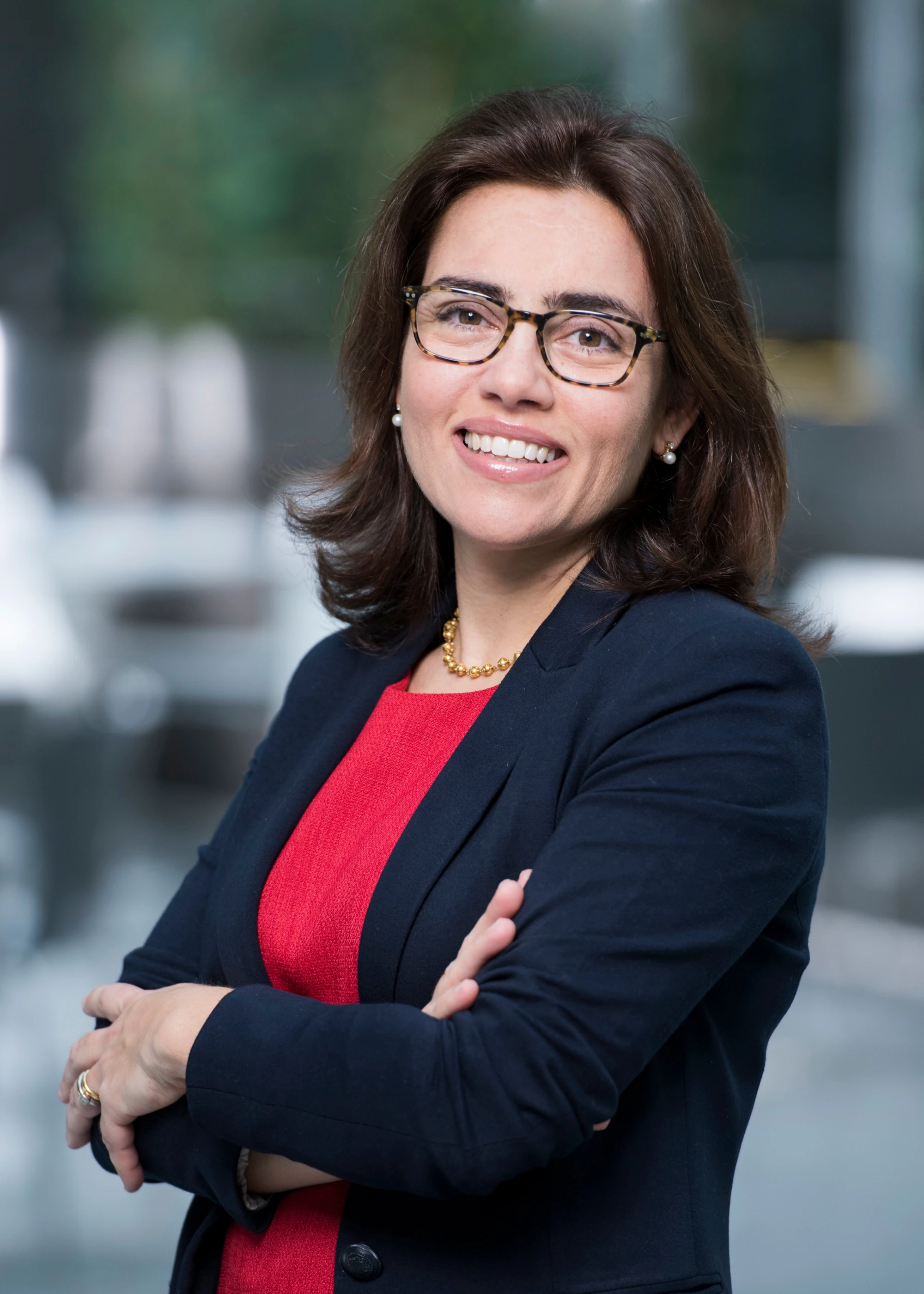 In Europe and Central Asia, teacher shortages have been a significant constraint to providing quality instruction. Copyright: Shutterstock
In Europe and Central Asia, teacher shortages have been a significant constraint to providing quality instruction. Copyright: Shutterstock
On December 5th, the Organization for Economic Cooperation and Development (OECD) released the results of the 2022 Programme for International Student Assessment (PISA)—the most comprehensive cross-country comparison of children's learning outcomes in basic education. Even more than usual, educators and policymakers eagerly anticipated the results since this was the first PISA release after the COVID-19 crisis.
PISA results vary across the ECA region
Results from past international assessments (PIRLS 2021) already provided a gloomy picture of the state of learning of 4th graders around the world. The information released recently for Europe and Central Asia (ECA) countries, reinforced that student learning declined between 2018 and 2022. There were acute drops in mathematics at 16.8 points on average and in reading at 13.7 points on average (see Figure 1). The gap between socioeconomic groups remains large and, between the 2018 and 2022 rounds, it has widened significantly for Austria, Estonia, Finland, Sweden, Switzerland, and Romania. This dynamic translates into heavy productivity and earnings losses for future workers and economies.
There is some positive news for the ECA region, too. PISA 2022 welcomed Uzbekistan as a new participating county. Though Uzbekistan is starting out at the bottom among participating ECA countries, it is very important that the country joined PISA to collect internationally comparable and representative data on learning outcomes. This data is a fundamental baseline for learning and will help monitor much-needed education reforms in this progressive Central Asian economy. ECA countries that performed relatively well in PISA, mainly maintaining the proficiency levels of 2018, are Croatia, Czech Republic, Italy, Kazakhstan, Romania, Türkiye, and Serbia. On the opposite side, countries that showed large declines include Albania, Iceland, North Macedonia, and Finland, losing more than 30 points in reading, and Norway, losing more than 30 points in mathematics.
Figure 1: Change in student leaning outcomes in mathematics and reading PISA 2022 - PISA 2018
Unveiling a striking surge in teacher shortages
Concerning as they may be, these results aren't shocking for regional policymakers and practitioners. It was evident that the mix of a profound economic crisis and prolonged school closures due to the COVID-19 pandemic would significantly impact student learning. Moreover, many countries in ECA have already been experiencing a notable decline in learning.
A standout revelation from the 2022 PISA survey is the unexpected trend regarding teacher shortages. The data indicates a growing concern among surveyed school directors who cite the lack of teachers as a significant constraint to providing quality instruction. While this pattern is common to all regions served by the World Bank, the magnitude of this change is larger in ECA than elsewhere. For example, in Macedonia, Montenegro, Serbia, Croatia, and Greece, the percentage of students whose principals reported the lack of teachers has doubled between 2018 and 2022 (see Figure 2).
Figure 2: Percentage of students in schools whose principal reported that the school’s capacity to provide instruction is hindered to some extent or a lot by a lack of teaching staff
The percentage of students whose principals reporting that teacher quality is a constraint to delivering quality instruction has also increased since 2018 by two-thirds (from 12.9% to 21.3% on average). It becomes very evident that if these ECA countries want to accelerate their learning trajectories, they must reverse these trends related to the lack of good teachers.
Reversing teacher shortages
Much like what is observed for learning outcomes, the deficit in qualified teachers steams both from structural and cyclical factors. In many ECA countries, an increasing share of well-trained and experienced teachers is retiring or close to retirement. For instance, in Bulgaria and Georgia, about half of all teachers are age 50 or above, vis a vis the 35 percent average in the OECD and the European Union. This creates a unique opportunity to bring new talent into the teaching profession with different competencies and skills from those retiring.
Despite significant increases in teacher compensation (see Romania and Bulgaria), most systems are failing to attract and retain their most talented, and motivated, higher education graduates. It is crucial for teachers to feel effective and empowered in schools to remain in their roles. The challenges exacerbated by COVID-19, including extended school closures and differential access to distance learning, have made teaching more demanding and potentially less effective. The heterogeneity of learning ability among students within the same classroom has increased. Teaching to an “average student” becomes a less effective strategy. Additionally, students also require more psychological support, which current teachers are often unable to provide.
There has been a lot of well-justified attention on COVID-19 impact on students’ mental and socioemotional wellbeing, but much less on teachers’. In many conversations with policy-makers in the ECA region, teacher mental wellbeing has emerged as a widespread concern (see 1 and 2). A longitudinal study for Norway shows that teacher burnout is a strong predictor of teachers quitting. This is an area where more should be done. Recent reforms extending the school day in ECA, including in Croatia and Serbia, offer the opportunity to tackle teacher competencies and well-being in a more systematic way.
Emerging labor market trends and parental involvement
There are also some newer trends in the labor market that can contribute to growing teachers’ dissatisfaction with their profession. Post-COVID evidence shows that there is an increased demand to work from home to gain flexibility. These new preferences are stronger among women with young children, who represent a large share of the teaching body. The inability of the education system to promptly adjust to these trends might permanently compromise its ability to attract high-quality professionals into the teaching career.
Amidst rising demands on the education system, there is a concerning decline in parental involvement—a crucial element in fostering children's learning. PISA data reveals a 50% reduction in the share of principals reporting that students’ parents are involved in their children’s progress between 2018 and 2022 in many ECA countries, including Montenegro, Moldova, Croatia and Poland. If this pattern persists, teachers will face an increased need to exert extra effort to improve learning outcomes.
Supporting teacher reforms
Facing these challenges, which are also opportunities, the World Bank is uniquely placed to continue supporting countries in advancing teacher reform. Across ECA countries, the World Bank is supporting teacher reform through different interventions and instruments, including in-service and pre-service teacher training and professional development. Interventions include the comprehensive analytics, knowledge exchanges, revision of teaching and learning approaches, establishing teacher professional development frameworks or supporting governance reforms at the system level.
Meanwhile, PISA 2022 data reiterates that more needs to be done. If ECA countries want more and better teachers, improvement of their mental well-being and working conditions should also be at the center of government’s systemic efforts.
To receive weekly articles, sign-up here





Join the Conversation